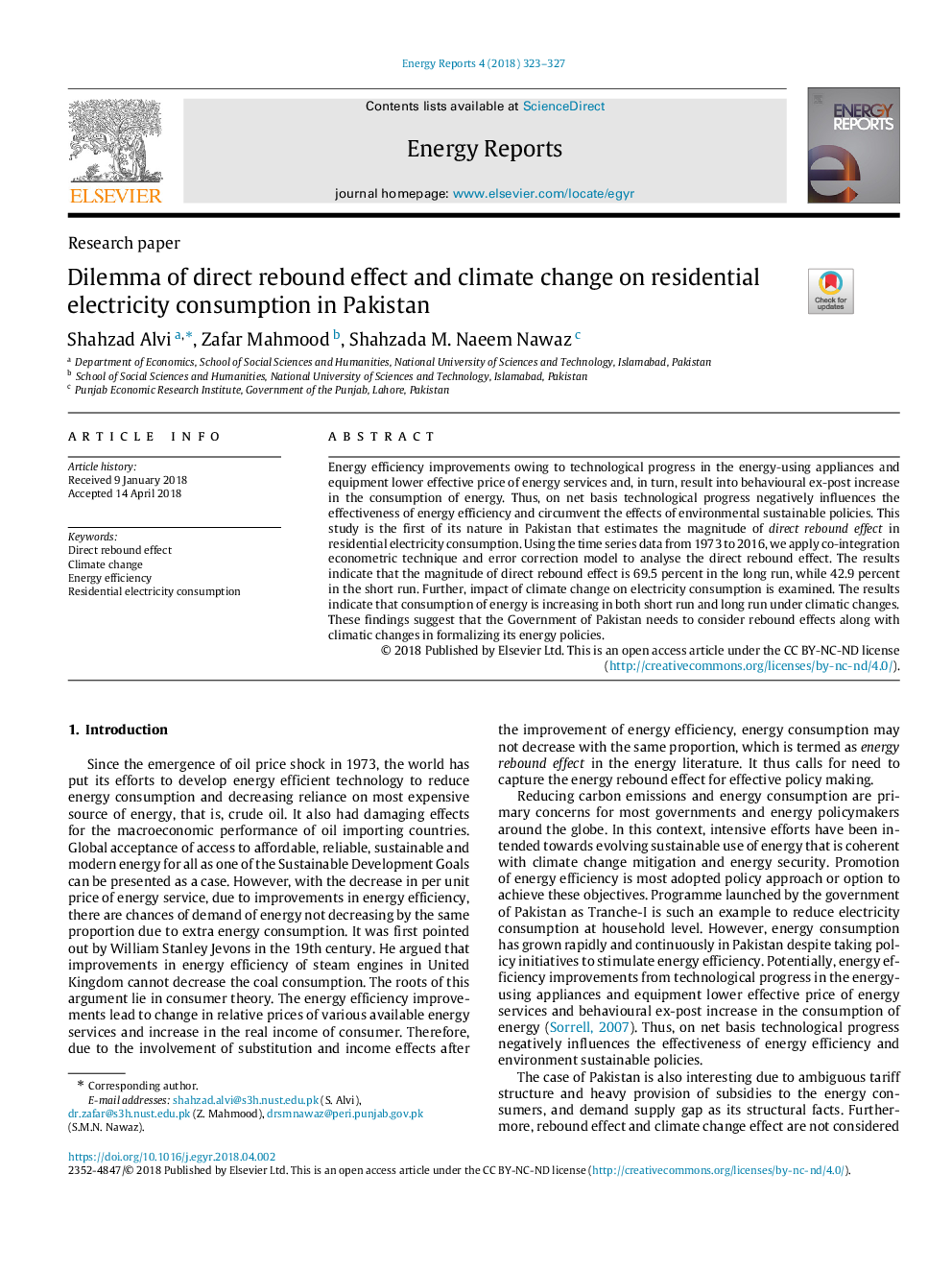| Article ID | Journal | Published Year | Pages | File Type |
|---|---|---|---|---|
| 8079605 | Energy Reports | 2018 | 5 Pages |
Abstract
Energy efficiency improvements owing to technological progress in the energy-using appliances and equipment lower effective price of energy services and, in turn, result into behavioural ex-post increase in the consumption of energy. Thus, on net basis technological progress negatively influences the effectiveness of energy efficiency and circumvent the effects of environmental sustainable policies. This study is the first of its nature in Pakistan that estimates the magnitude of direct rebound effect in residential electricity consumption. Using the time series data from 1973 to 2016, we apply co-integration econometric technique and error correction model to analyse the direct rebound effect. The results indicate that the magnitude of direct rebound effect is 69.5 percent in the long run, while 42.9 percent in the short run. Further, impact of climate change on electricity consumption is examined. The results indicate that consumption of energy is increasing in both short run and long run under climatic changes. These findings suggest that the Government of Pakistan needs to consider rebound effects along with climatic changes in formalizing its energy policies.
Related Topics
Physical Sciences and Engineering
Energy
Energy Engineering and Power Technology
Authors
Shahzad Alvi, Zafar Mahmood, Shahzada M. Naeem Nawaz,
